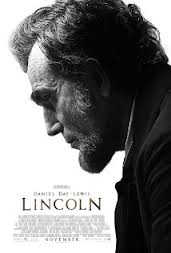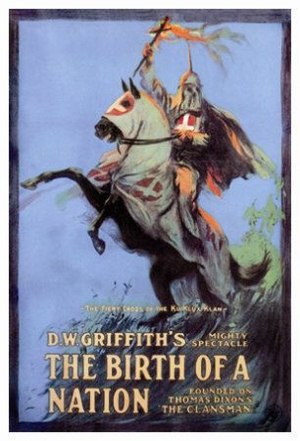 Django Unchained, Quentin Tarantino’s violent fantasy, is a great segue to Steven Spielberg’s fact-based Lincoln. Django ends with him rescuing his wife and burning a plantation mansion to the ground. Lincoln opens with a negro Union soldier telling President Lincoln about exacting bloody revenge on ‘Rebs’ for an earlier massacre of black troopers. In fantasy or fact, seeing black men portrayed as taking control of their destiny was gratifying to see.
Django Unchained, Quentin Tarantino’s violent fantasy, is a great segue to Steven Spielberg’s fact-based Lincoln. Django ends with him rescuing his wife and burning a plantation mansion to the ground. Lincoln opens with a negro Union soldier telling President Lincoln about exacting bloody revenge on ‘Rebs’ for an earlier massacre of black troopers. In fantasy or fact, seeing black men portrayed as taking control of their destiny was gratifying to see.
Also, I give Spielberg credit for portraying the dichotomy in the black community that exists to this day. After the black private (who appears to be an ex-slave) recounts with pride his exploits to free his people, a “well-spoken” black corporal challenges Lincoln on the questions of black officers and equal pay. One black man is focused on freeing his people from bondage and the other is focused on equality for black people. That dichotomy frames the rest of the film’s focus on the effort to pass the 13th Amendment.
That dichotomy seems to frame the reactions of black people to Django. Black elites seem obsessed with the number of times “nigger” or some form of it is uttered in Django Unchained. Because Django and other blacks (i.e., slaves) were central to the story, the epithet was uttered many times. In Lincoln, although blacks were central to the storyline, they were not on-screen a lot. But when they were referred to, the epithet was used.
For me, the slaves freed by Django Freeman in the last reel of the Tarantino film became the heroic black Union troopers portrayed in Spielberg’s film.

I’ll conclude by saying that Steven Spielberg’s Lincoln is a long awaited answer to D.W. Griffith‘s Birth of a Nation, a film which glorified the Confederacy and the rise of the Ku Klux Klan. Spielberg reminds a new generation of Americans, who have witnessed the election and re-election of Barack Obama to the presidency, what it took to get to this point in our nation’s history.
And based on the applause the film received at its conclusion during my screening, I’d say that audiences are appreciative of his effort on behalf of history, past and present.
Related articles
- ‘Lincoln’ leads Oscars with 12 nominations (sacbee.com)
- Film Review: Django Unchained (filmophilia.com)
- Django Unchained Controversy: A Look at the Conundrum Tarantino’s Latest Created in Progressive Black America (digger666.com)


That was a well written post. I am a 5th grade teacher and i would love for my students to be able to see a few of the films. Taking into consideration that the Civil War is a big topic in elementary school.